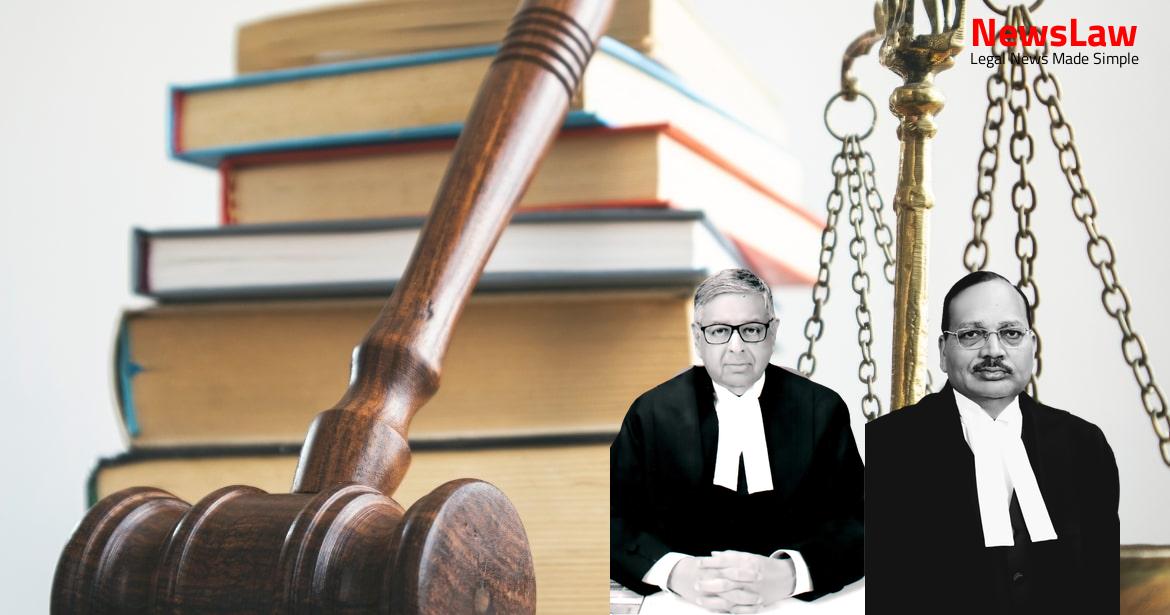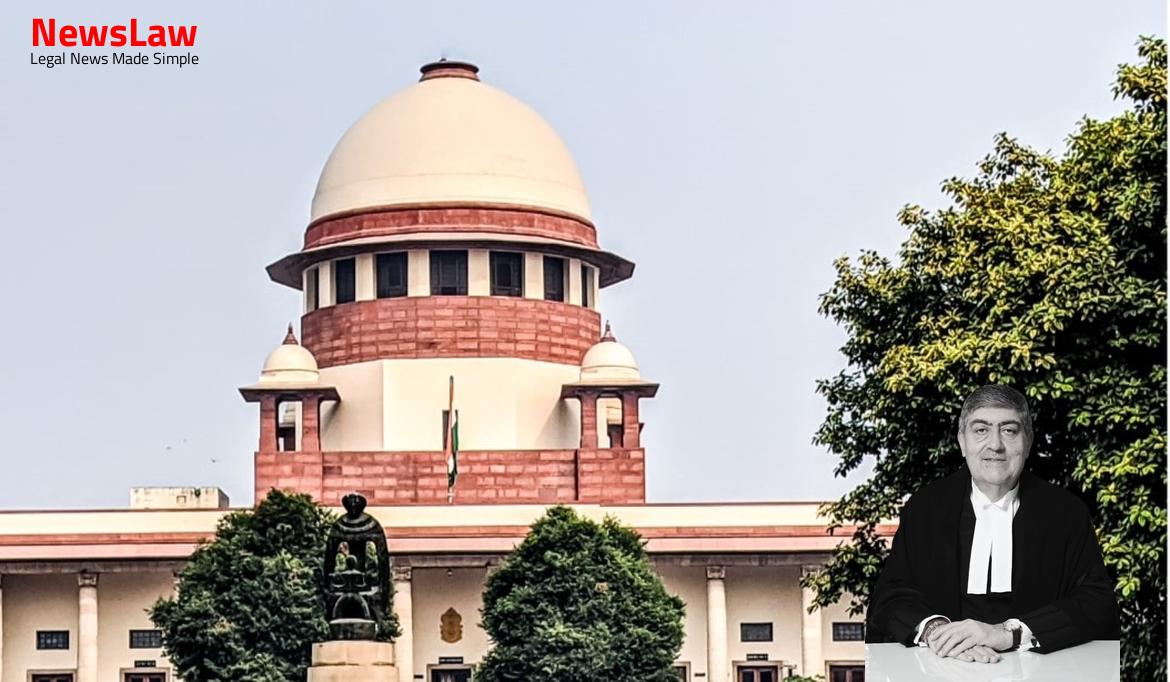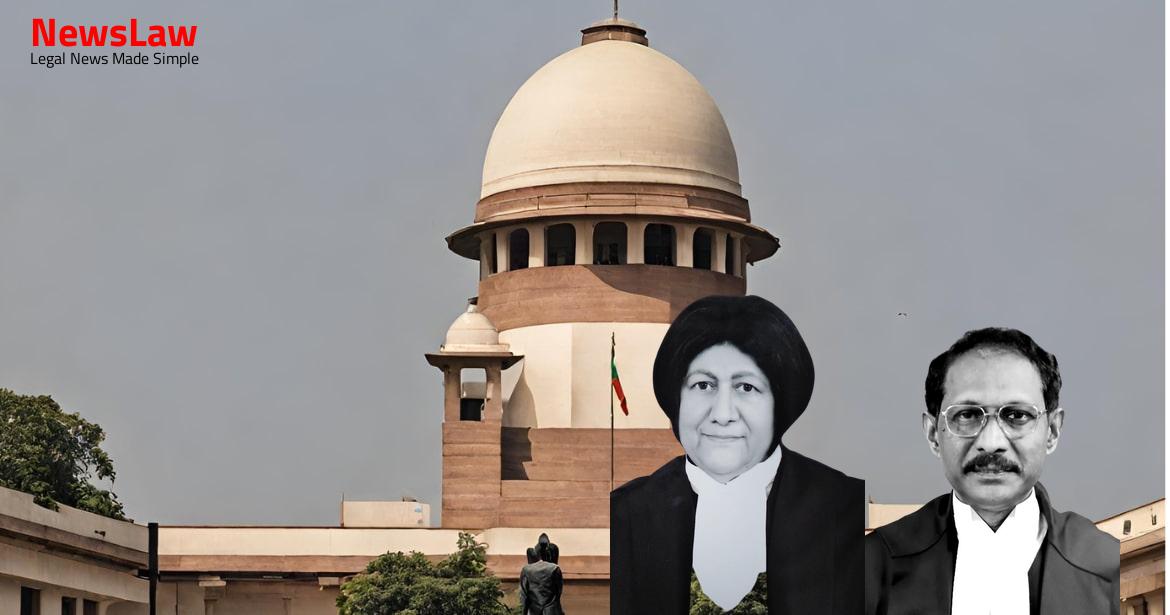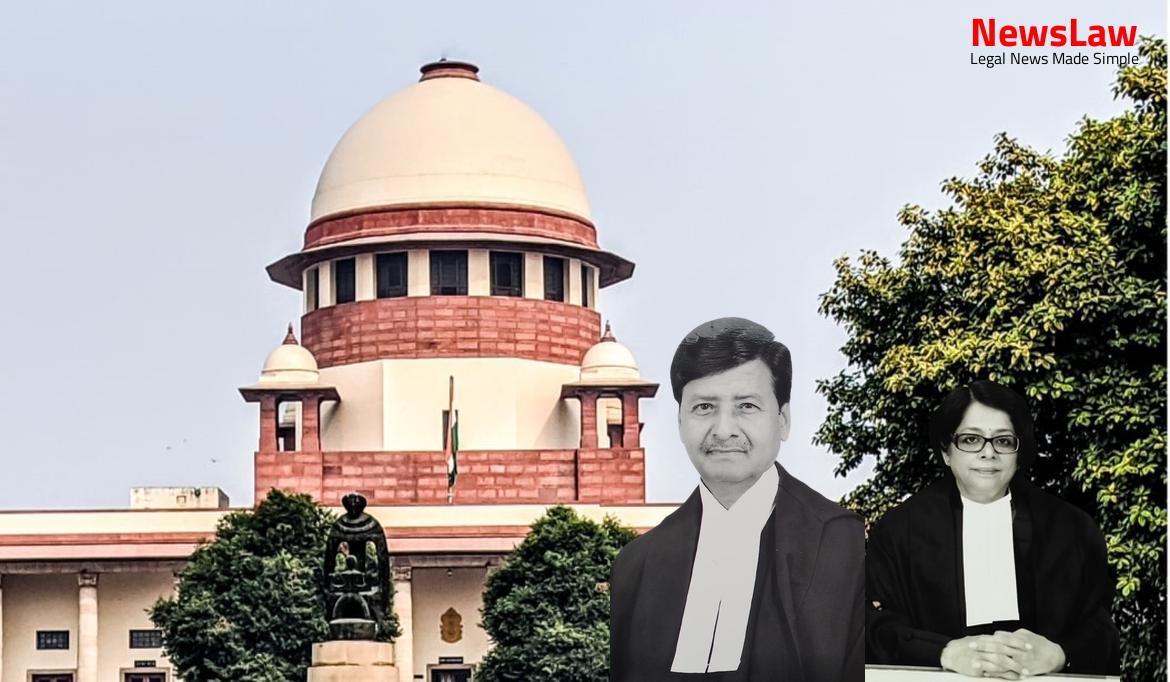Delve into a legal case where the court emphasized the importance of a reformative approach in criminal justice, particularly regarding decisions on premature release. The court’s detailed analysis highlights the significance of considering individual conduct in prison and antecedents, rather than solely focusing on the severity of the original crime or the length of the sentence. This blog post delves into the critical factors and principles discussed by the court in determining the entitlement to premature release.
Facts
- Two petitioners seeking special leave to appeal against conviction under Section 364-A of the IPC.
- Petitioners denied charges, examined three defence witnesses.
- Case committed to the Additional Sessions Judge, Fast Track Court – I, Ghaziabad.
- Eleven witnesses deposed for the prosecution, including victim, complainant, bystanders, and police officers.
- Incident on 12.06.2002, victim stopped by acquaintance, threatened with pistol, administered tablets, and ransom money demanded.
- Ransom renegotiated to Rs 32 lakhs, physically brought by complainant to Ramvir’s home on 14.07.2002.
- Petitioners subsequently arrested on 16.07.2002 for kidnapping for ransom.
- Victim’s father filed missing report, petitioner pretended to be ‘Shekhar’, coerced victim to write ransom letter.
- Incriminating evidence including voice recordings, Call Detail Records, seized money, and recovered revolver presented in court.
- Police raid conducted upon information from complainant, leading to arrests.
- Limited notice issued to the respondent-State of Uttar Pradesh to ascertain entitlement of the petitioners for premature release under Jail Manual.
- Counter-affidavits filed by the respondent-State providing information on the consideration and rejection of premature release proposals for Satish and Vikky.
- Court directed fresh consideration of the petitioners’ cases for premature release on 08.06.2020 due to long-term incarceration and highlighted flaws in previous decisions.
- Petitioners, Vikky and Satish, filed Special Leave Petitions which were heard and declined by the Court on 06.09.2019 regarding their kidnapping conviction.
- Limited notice issued to respondent-State for details on petitioners’ entitlement to premature release leading to the reconsideration of their cases.
- Court directed respondent-State to re-evaluate Satish and Vikky’s cases for premature release on 25.08.2020 due to non-compliance and lack of reasoned orders.
- Trial Court found charges of kidnapping for ransom under Section 364-A IPC and Arms Act Section 25 proved against all accused, leading to life imprisonment and fines.
- All accused appealed to Allahabad High Court, which upheld the life imprisonment but set aside the Arms Act conviction.
- Probation Board rejected Satish’s probation citing heinous crime, potential of repeating the offense, informant apprehensions, and adverse societal impact.
- State counsel argued Probation Board’s decision was in disregard of Court directions and individual dignity.
Also Read: Analysis of Suppression of Information in Employment Selection: Legal Perspective
Arguments
- Counsel for the petitioners have argued against the rationale of the Government Orders
- The petitioners’ healthy physical condition and apprehensions of informant were highlighted
- Mercy petition not recommended due to various factors
- Age of one petitioner cited as 43 years
- The mandatory factors of ‘antecedents’ and ‘conduct in prison’ were overlooked in the impugned orders
- Extraneous factors were used to justify the orders instead
- No attempts were made to assess the petitioners’ propensity for future crimes
- The importance of lengthy imprisonment, lack of antecedents, and good conduct in jail was emphasized by counsel for the petitioners
Also Read: Analysis of Cheating and Forgery in Passport Case
Analysis
- The judgment discusses the principles and criteria for the release of prisoners on probation.
- It highlights the importance of considering conduct in jail and antecedents rather than solely focusing on the length of the sentence or the severity of the original crime.
- The petitioners in this case have demonstrated exemplary conduct during their incarceration, including pursuing education and skill development.
- The court emphasizes the need for a balanced approach between individual welfare and societal safety in deciding on premature release.
- It notes that the refusal of release should be based on factual evidence, not vague opinions of state authorities.
- The judgment also touches upon the role of the executive in implementing statutory mandates for premature release.
- The court urges a shift towards a reformative approach in criminal justice, focusing on rehabilitation and reintegration rather than strict punishment.
- The constitutional provisions allowing for the suspension, remission, or commutation of sentences reflect these reformative principles.
- The court criticizes instances where the statutory requirements for premature release have been overlooked, emphasizing the need for a thorough and reasoned decision-making process.
- The State Government is authorized to release a prisoner on license under certain conditions.
- The decision to release a prisoner is based on their antecedents and conduct in prison, indicating a likelihood of leading a law-abiding life.
- The released prisoner must be placed under the supervision of a Government Officer, a person of the same religion, or an approved secular institution or society.
- The approved entity taking charge of the released prisoner must be recognized by the State Government.
- The release on license is subject to compliance with the specified conditions.
Also Read: Discrepancy in Date of Birth: Court’s Legal Analysis
Case Title: SATISH @ SABBE Vs. THE STATE OF UTTAR PRADESH (2020 INSC 567)
Case Number: SLP(Crl) No.-007369 / 2019



